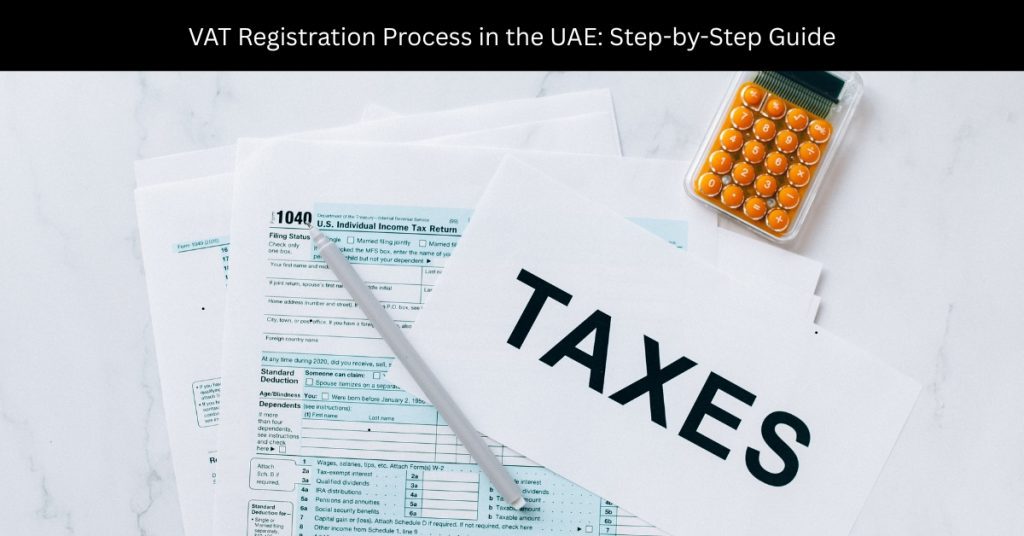Corporate Tax Planning Strategies in UAE
Optimize Your Tax Savings and Ensure Compliance in 2024
Table of Contents
- Introduction to Corporate Tax Planning in UAE
- Understanding Corporate Tax in UAE
- Why Strategic Corporate Tax Planning Matters
- Top Corporate Tax Planning Strategies in UAE
- Corporate Tax Compliance Essentials
- How One Desk Solution Supports Your Corporate Tax Planning
- Corporate Tax Planning Strategies Comparison
- Tax Planning Impact on Taxable Income
- Frequently Asked Questions
- Conclusion
Introduction to Corporate Tax Planning in UAE
With the introduction of the UAE's corporate tax regime in 2023, effective tax planning has become essential for businesses aiming to optimize tax savings and ensure compliance. One Desk Solution, a leading VAT, Tax, bookkeeping, and audit services provider in Dubai, is here to guide your business through comprehensive corporate tax planning strategies tailored to the UAE's unique fiscal landscape.
The UAE's corporate tax implementation marks a significant shift in the country's business environment, aligning with global tax standards while maintaining its competitive appeal for entrepreneurs and investors. Proper tax planning is no longer optional but a strategic necessity for businesses of all sizes operating in the UAE.
This comprehensive guide explores practical corporate tax planning strategies that can help your business minimize tax liabilities, maximize savings, and maintain full compliance with UAE tax regulations.
Need expert guidance on corporate tax planning in the UAE?
Contact Us Today Call: +971-52 797 1228 WhatsApp UsUnderstanding Corporate Tax in UAE
Starting June 1, 2023, the UAE implemented a standard corporate tax rate of 9% on business profits exceeding AED 375,000. This move aligns the UAE with global tax standards while maintaining its competitive appeal for entrepreneurs and investors. The tax applies to most businesses, except for entities wholly benefiting from approved free zone incentives under specific conditions and small businesses falling below the threshold.
Key Highlights:
- Corporate tax rate: 9% on taxable profits above AED 375,000
- Tax-free threshold: AED 375,000 supporting SMEs and startups
- Free zone businesses may benefit from exemptions subject to conditions
- Compliance with accounting standards (IFRS) and documentation requirements is mandatory
One Desk Solution ensures your business remains compliant by managing your corporate tax filings, VAT registration, audited financial statements, and bookkeeping with expert precision.
Why Strategic Corporate Tax Planning Matters
Tax planning is more than mere compliance—it's about optimizing your tax liability to foster business growth and competitive advantage. Efficient corporate tax planning reduces cash outflows, prevents penalties, and enhances financial management, helping businesses reinvest savings into operational expansion.
In the UAE's dynamic business environment, proactive tax planning provides several key benefits:
- Maximized cash flow: Reduced tax liabilities mean more capital available for business investment
- Competitive advantage: Lower operational costs compared to competitors with inefficient tax strategies
- Compliance assurance: Avoidance of penalties and legal complications
- Strategic decision-making: Tax considerations integrated into business planning and expansion decisions
Top Corporate Tax Planning Strategies in UAE
1. Claim All Eligible Business Expenses
Meticulous documentation and claiming of all business-related expenses, from small expenditures like parking fees to significant operational costs, lower your taxable profit base. Only costs wholly and exclusively incurred for business purposes qualify for deductions.
Tips for Expense Management:
- Keep organized records of receipts and invoices
- Track every business expense, no matter how minor
- Consult with tax professionals to classify allowable expenses accurately
2. Optimize Business Structure and Entity Setup
Choosing the optimal legal entity and structuring your operations across Mainland, Free Zones, or offshore entities can yield tax benefits.
| Entity Type | Tax Benefits | Typical Use Cases |
|---|---|---|
| Mainland | Fully subject to corporate tax; local market access | For businesses targeting UAE local markets |
| Free Zone | Possibly 0% corporate tax for qualifying income; restrictions apply | International trade, holding companies |
| Offshore | May offer operational ease; tax advantages depend on activities | Holding assets and intellectual property |
Strategically using dual-entity structures, such as holding companies in free zones combined with mainland operating entities, can optimize tax exposure and leverage treaty benefits.
Learn more about entity selection in our detailed guide: Free Zone vs Mainland Tax Implications
3. Leverage Holding Company Advantages
Free zone holding companies allow tax-free receipt of dividends from subsidiaries and access to double tax treaties, minimizing withholding taxes on cross-border payments and optimizing profit repatriation.
Discover the benefits of specific free zones: Advantages of DIFC Setup
4. Administrate Timing of Income and Expenses
Carefully managing when income is recognized and expenses are incurred can control taxable profit within a fiscal year, smoothing out tax liabilities and maximizing cash flow.
For example:
- Postpone income recognition to the next tax year if profitable
- Accelerate deductible expenses into the current year
5. Utilize Tax Credits and Incentives
The UAE offers tax credits and incentives for specific business activities such as research and development, green energy investments, and innovation. Aligning your business strategy with these incentives can lead to substantial tax savings.
6. Take Advantage of Director's Salary and Dividend Planning
Owners and directors can reduce corporate taxable income by paying themselves salaries, treated as deductible business expenses, or dividends, which may have favorable tax treatment.
7. Maintain Accurate and Compliant Accounting Records
Complying with IFRS standards and keeping thorough financial records facilitates smooth corporate tax submissions and minimizes audit risks.
One Desk Solution provides comprehensive bookkeeping and audit services ensuring your records withstand Federal Tax Authority (FTA) scrutiny.
Learn about record-keeping requirements: Tax Records UAE Companies Must Maintain
Corporate Tax Compliance Essentials
To meet UAE FTA requirements, businesses must:
- Register for corporate tax and obtain a Tax Registration Number (TRN)
- Submit accurate tax returns within 9 months after the fiscal year-end
- Keep audited financial statements (especially for large firms and free zone entities)
- Maintain transfer pricing documentation for related-party transactions
- Pay due corporate tax on or before deadlines to avoid penalties
Understand potential compliance risks: Corporate Tax Penalties in UAE
How One Desk Solution Supports Your Corporate Tax Planning
At One Desk Solution, we specialize in aligning your corporate tax planning with UAE regulations and optimizing your financial strategies. Our expert services include:
- Tailored tax planning and advisory
- VAT compliance and filings
- Bookkeeping and accounting per IFRS standards
- Internal and external audits ensuring regulatory compliance
- Business setup and PRO services facilitating smooth operations
- Corporate tax registration and timely filing assistance
Our seasoned professionals bring hands-on experience and deep knowledge of UAE tax laws to ensure your business minimizes tax liabilities while staying fully compliant.
Explore our full range of services: One Desk Solution Services
Corporate Tax Planning Strategies Comparison Table
| Strategy | Benefits | Considerations | One Desk Solution Support |
|---|---|---|---|
| Claiming All Expenses | Reduces taxable income | Requires detailed record-keeping | Expense classification and claims management |
| Entity Structure Optimization | Tax efficiency through legal form | Complex setup; needs strategic planning | Entity advisory and structuring |
| Holding Company Setup | Dividends tax-free; treaty benefits | Compliance with free zone rules | Holding company formation & management |
| Income/Expense Timing | Cash flow optimization | Must align with accounting standards | Fiscal year planning consultancy |
| Tax Credits/Incentives | Direct tax savings | Requires eligibility assessment | Incentive identification and application |
| Salary/Dividend Planning | Reduces corporate tax | Compliance with labor and tax laws | Payroll and compliance management |
| Accounting Compliance | Avoids penalties, audit risks | Needs IFRS expertise | Bookkeeping, audit, and reporting services |
Tax Planning Impact on Taxable Income
The following chart illustrates how implementing various tax planning strategies can significantly reduce your corporate tax liability:
| Scenario | Taxable Income (AED) | Corporate Tax @9% (AED) |
|---|---|---|
| Without Planning | 1,000,000 | 90,000 |
| With Expense Claims | 850,000 | 76,500 |
| Including Holding Company | 700,000 | 63,000 |
| Full Strategy Adoption | 600,000 | 54,000 |
Visual Representation of Tax Savings
As demonstrated, comprehensive tax planning can reduce your tax liability by up to 40% compared to operating without any strategic tax considerations.
Frequently Asked Questions
1. What is the corporate tax rate in the UAE for 2024?
The standard corporate tax rate in the UAE is 9% on taxable income exceeding AED 375,000. Income below this threshold is taxed at 0%. Free zone businesses may qualify for 0% corporate tax on qualifying income under specific conditions.
2. How can free zone companies benefit from corporate tax exemptions?
Free zone companies can benefit from 0% corporate tax on qualifying income if they maintain adequate substance in the UAE, derive qualifying income as defined in relevant cabinet decisions, and comply with all regulatory requirements. They must also elect to be subject to corporate tax at 0% and not elect to be subject to the standard corporate tax regime.
3. What are the penalties for non-compliance with UAE corporate tax regulations?
Penalties for non-compliance can include late registration penalties (up to AED 10,000), late filing penalties (up to AED 1,000 per month with a maximum of AED 10,000), and late payment penalties (2% monthly on unpaid tax with a maximum of 300% of the unpaid tax). For detailed information, refer to our guide on Corporate Tax Penalties in UAE.
4. Can small businesses benefit from corporate tax planning strategies?
Yes, small businesses can significantly benefit from tax planning strategies. Even with income below the AED 375,000 threshold, proper planning ensures compliance and prepares businesses for future growth. Strategies like expense tracking, entity optimization, and timing of income/expenses are valuable for businesses of all sizes.
5. How does transfer pricing affect corporate tax planning in the UAE?
Transfer pricing regulations require that transactions between related parties be conducted at arm's length. Proper transfer pricing documentation is essential for compliance and can impact tax liabilities significantly. Businesses must maintain contemporaneous documentation including master file, local file, and country-by-country reporting where applicable.
Conclusion
Corporate tax planning is crucial for businesses operating in UAE's evolving tax landscape. By implementing strategies such as thorough expense claims, optimal entity structuring, leveraging incentives, and maintaining meticulous records, companies can significantly reduce their tax liability.
One Desk Solution stands as Dubai's trusted partner for VAT, Tax, bookkeeping, audit services, and expert corporate tax planning, empowering businesses to achieve compliance and sustainable growth.
For tailored corporate tax solutions designed specifically for your UAE business, contact One Desk Solution today and take your financial planning to the next level.
Related Articles:
Free Zone vs Mainland Tax Implications Advantages of DIFC Setup VAT Registration Threshold in UAE Tax Records UAE Companies Must Maintain Corporate Tax Penalties in UAE Due Diligence Audit for Business Acquisitions Correct Tax Invoice Format in UAE Common Audit Findings and Solutions Accounting Records UAE Companies Must Maintain Financial Records Requirements for Audit Cost of Audit Services in UAE Approved Accounting Software in UAE Accounting Software Recommendations for UAEOne Desk Solution - Your Trusted Tax and Business Advisory Partner in Dubai
Phone: +971-52 797 1228 | Email: info@onedesksolution.com
Website: https://onedesksolution.com/



